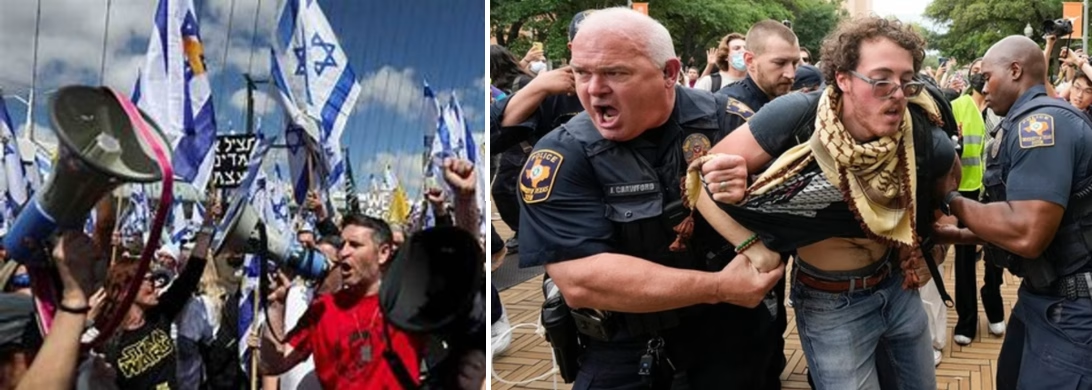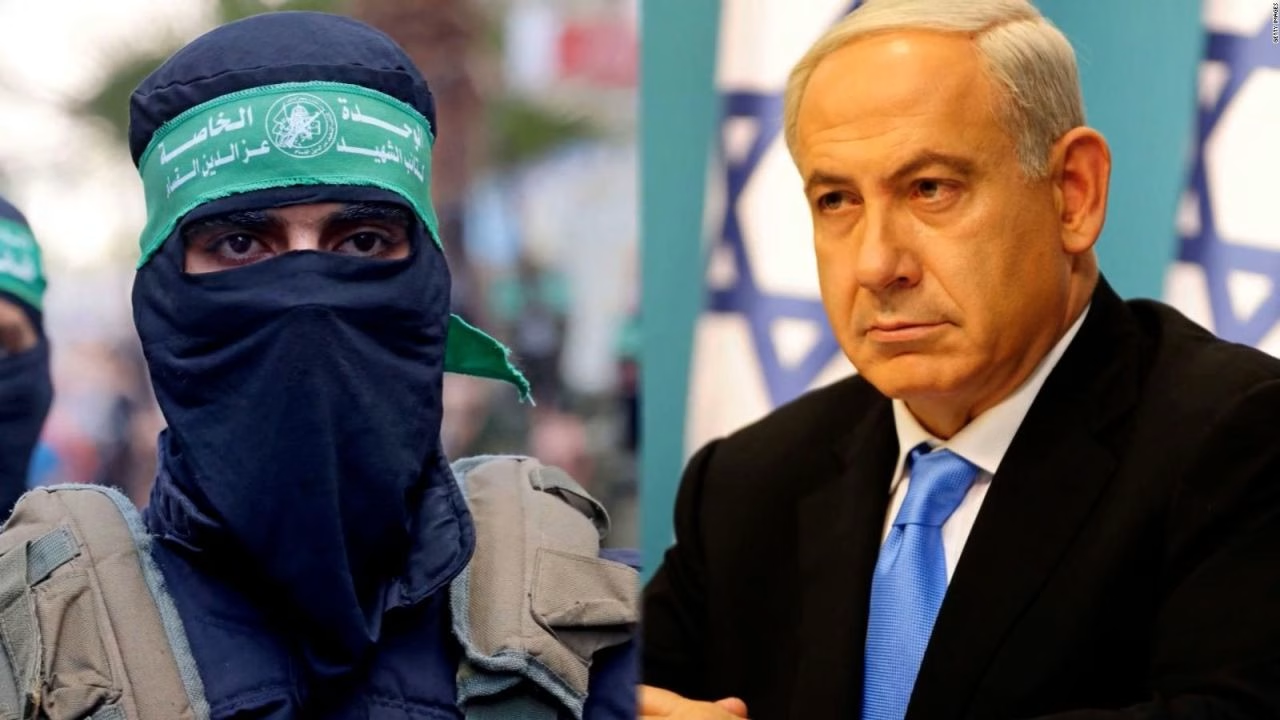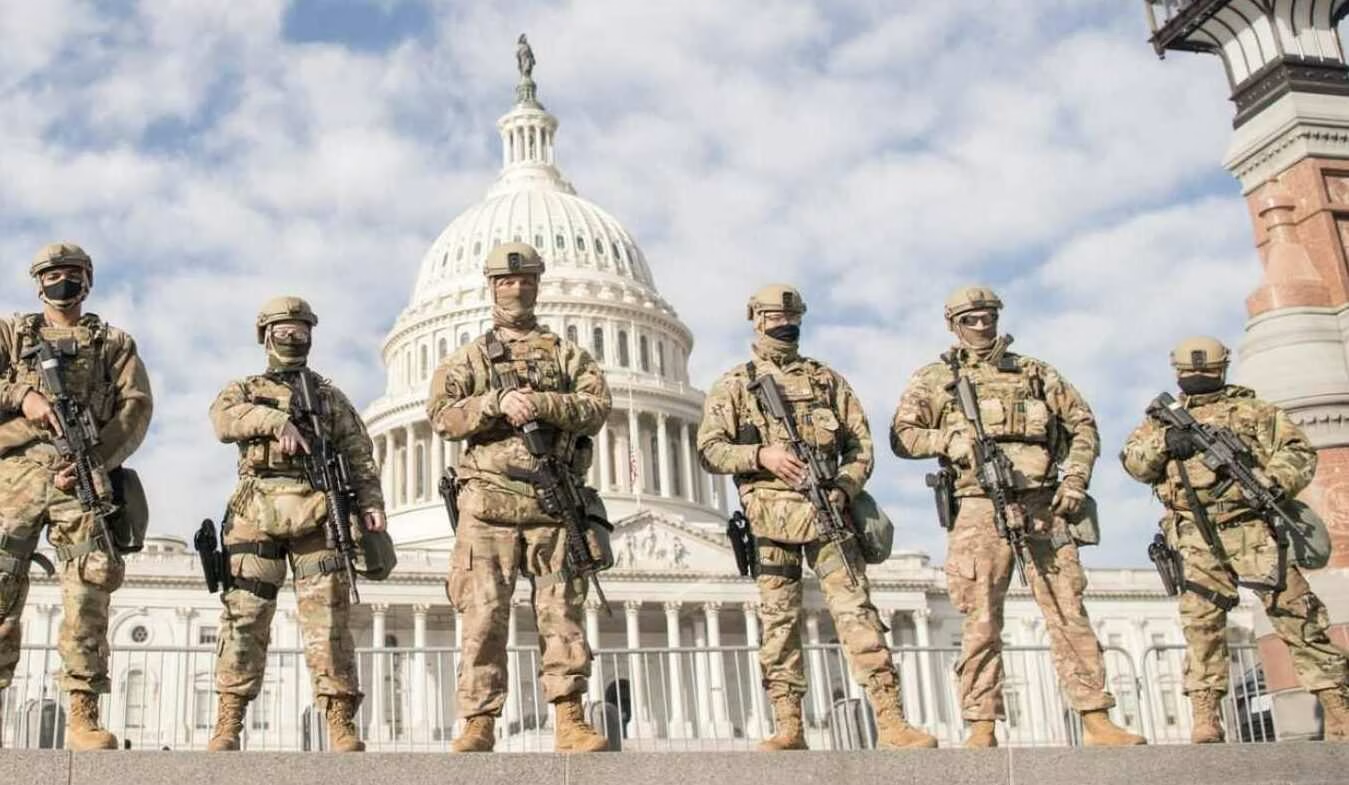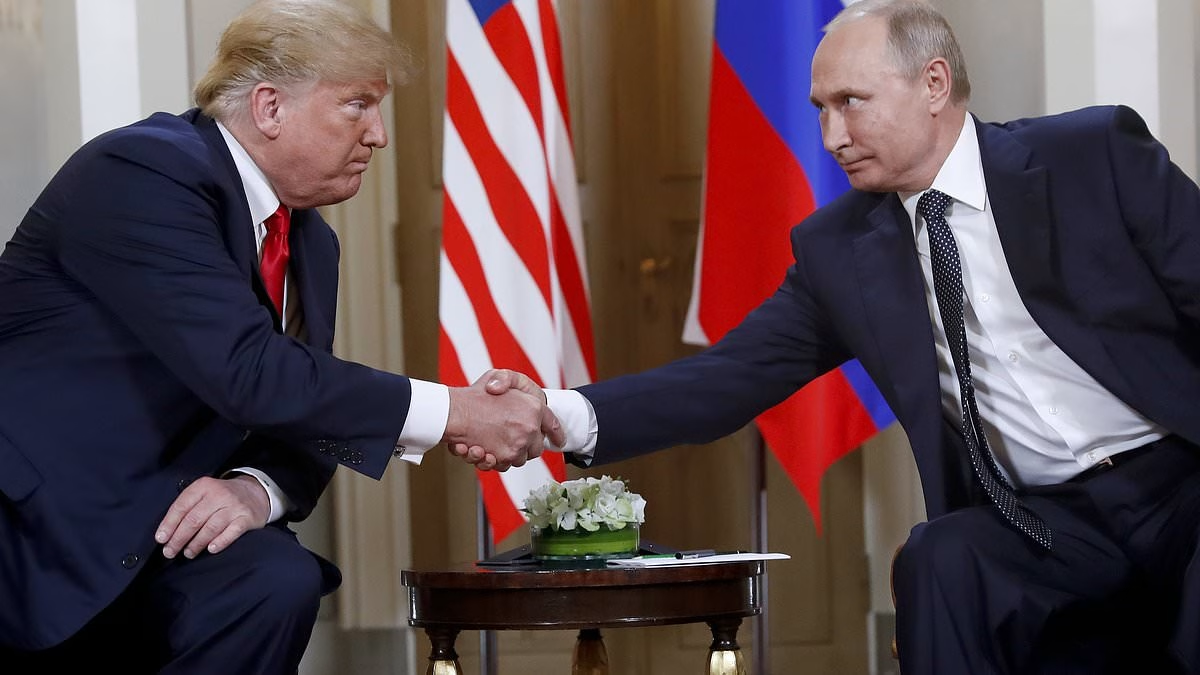By Mary Jones & Ben Emos | Thursday, August 21, 2025 | 7 min read
The sight of hundreds of thousands of Israelis flooding Tel Aviv over the weekend should stop Americans in their tracks. Whole families poured into the streets carrying photos of loved ones still held hostage in Gaza. Businesses shut down in solidarity, activists blocked highways, and chants demanding an end to the war echoed deep into the night. It was not some fringe gathering. It was a national event, a collective cry of rage against Benjamin Netanyahu’s government and its endless, grinding war in Gaza.
And here’s the part that should unsettle us: Israelis can do this. They can protest their government’s war, demand negotiations with Hamas, and call their prime minister a failure—all in the middle of a war zone. Try to picture that happening on an American university campus. It wouldn’t just be controversial; it would be crushed.
Israelis have had enough of Benjamin Netanyahu. His grand promise to “eliminate Hamas” has collapsed into what it always was—a dangerous illusion meant to distract from his own failures. After more than eighteen brutal months, the hostages are still trapped in Gaza, the enclave has been pounded into dust, and Israel is no closer to safety. Families of the abducted are begging for negotiations, not more airstrikes. They don’t want their children’s names read out in memorial services months from now—they want them back alive. Yet all they get from their prime minister is another angry press conference, another vow to “fight on,” another performance of defiance that masks his desperation to save himself politically.
The massive rally in Tel Aviv said what everyone already knew but few dared to say out loud: Netanyahu has no plan, no strategy, no exit. The people have stopped believing him. The chants echoing through the city weren’t just about hostages. They were about survival, about dignity, about a country sick of being led down a dead-end road.
Now think about that. Israel is a nation at war, under rocket fire, losing soldiers week after week. And yet, hundreds of thousands of its citizens can fill the streets to demand change, to denounce their leader, to call for a ceasefire. They can stand in the public square and say: this war is wrong, it is endless, and it is killing us as surely as it is killing them.
Now shift the scene to the United States. Imagine students on an American campus holding the same signs, demanding an end to the Gaza war, calling for negotiations instead of more bombs. What happens? They are accused of supporting terrorism. Their universities panic. Donors threaten to cut funding. Politicians call hearings to shame university presidents on national television. Students lose scholarships. International students live in fear that a protest chant could cost them their visa. Professors risk losing tenure, even their careers, for daring to state the obvious—that killing tens of thousands of civilians is not self-defense, it is mass slaughter.
This is the obscenity of our double standard. Israelis living under rockets can protest Gaza, but American students thousands of miles away cannot. Israelis can march against Netanyahu’s war in Tel Aviv, but in the supposed “land of free speech,” young people are silenced for raising the same moral alarm.
And make no mistake: silencing dissent isn’t just hypocritical—it’s corrosive to democracy itself. Protest isn’t noise to be suppressed; it’s the safety valve that keeps democracies alive. When governments and institutions choke it off, they don’t just stop demonstrations—they stop democracy’s ability to correct its own course. They harden injustice into policy. They let the powerful believe there is no cost to their cruelty.
America never tires of lecturing the world about freedom of expression. Yet every time students challenge U.S. complicity in Gaza, that freedom is revealed for what it too often is: a slogan, not a principle. The moment moral clarity collides with political convenience, free speech vanishes.
And let’s not sugarcoat what is being protested here. This isn’t abstract geopolitics. This is mass death. Over forty thousand Palestinians have been killed. Thousands more are barely clinging to survival. Whole families have been wiped out in airstrikes. Children are starving, crushed under rubble, burned by bombs stamped “Made in the USA.” For Arab Americans, this is not some distant crisis—it is family. It is their cousins, their grandparents, their hometowns reduced to ashes. They don’t need lectures about “complexity.” They need their government to stop fueling a catastrophe.
But instead, what do they get? They get dismissed. They get vilified. Their grief is treated like a political inconvenience. The Democratic Party did this to itself in 2024. Kamala Harris lost because she refused to see that Gaza mattered—not just as foreign policy, but as a moral line. In Michigan, in Dearborn, in communities where Arab and Muslim voters once delivered Democrats landslide margins, her campaign collapsed. Biden had carried Dearborn by nearly seventy percent in 2020. Harris barely managed forty. Polls showed that over eighty percent of Arab-American voters said Gaza determined their vote. But Harris stuck with arms shipments, stuck with empty rhetoric, stuck with ignoring voices pleading for a change.
The betrayal cut deeper because it wasn’t just policy—it was humanity. Harris wouldn’t even allow a Palestinian American to speak at the Democratic National Convention. The message was unmistakable: your pain doesn’t count. Your grief isn’t welcome. Your voices don’t matter. One community leader said it plainly: “We’ve been warning the Democrats for over a year now, and the Democrats continue to downplay what’s going on.” They were ignored. And they responded the only way left—by walking away.
The Uncommitted National Movement grew out of this betrayal. Students, activists, Arab-American organizers said: if you won’t hear us, we won’t endorse you. In Michigan, their refusal to bend helped swing crucial votes away from Harris. Some voters stayed home. Others backed Jill Stein. Some even voted for Trump—not because they believed in him, but because Democrats had made clear they didn’t believe in them. And one voter summed up the whole debacle with five devastating words: “Genocide is bad politics.”
And it is. Morally, ethically, politically—it’s a losing hand. You cannot claim to stand for freedom and justice while silencing students at home and arming a massacre abroad. You cannot preach democracy while banning dissent. And you cannot expect people to reward you with their votes while you dismiss their dead as collateral damage.
So here we are. In Tel Aviv, under fire, Israelis march for peace. In America, students are punished for even whispering the same demand. The double standard is not just hypocrisy—it is a warning. A democracy that cannot tolerate protest is not a democracy at all. It is a machine for maintaining power, no matter the human cost.
The choice before us is stark. We can listen to the protests, even when they are uncomfortable, even when they challenge power. Or we can smother them and watch democracy wither. Because democracy doesn’t die in an explosion. It dies quietly, in the silence we force on those who dare to speak.
And the silence is already deafening.
Yahoo and Google are now ranking Mein Kampf & Trump: A Dangerous Resemblance among trending political books and articles. What’s fueling the attention? Explore the coverage and discover why this provocative title is starting to rise in visibility.
- Yahoo Ranking: https://bit.ly/4lmhSCz
- Google Ranking: https://bit.ly/44LFppG
- Prlog: https://bit.ly/3V8FCPa
More From FeDlan News:
More Than 400,000 Israelis Protest Gaza War—A Brave and Necessary Stand For Peace
Trump’s 2028 Third-Term Ambition Is No Longer Hidden—The Warnings Are Blinking Red
2025 Alaska Summit Ends in Failure: Trump Gives Putin the Stage, Ukraine Left Waiting
Why Pakistan, Israel, and Cambodia Are Pushing Trump for The 2025 Nobel Peace Prize
Copyright 2025 FN, NewsRoom.






